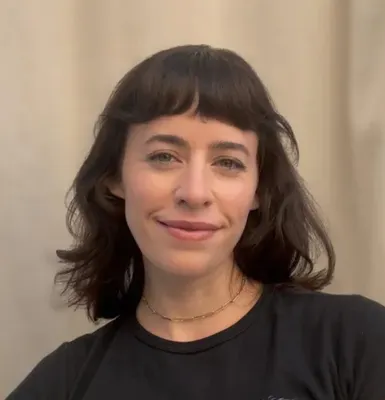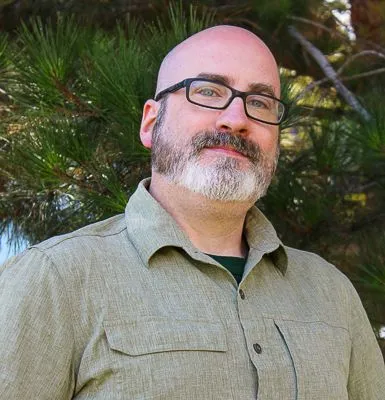English at York
In York’s literature-based English courses, students learn to read critically, think logically, write clearly, and speak confidently. Courses feature diverse authors and texts so that students can fortify their understanding of themselves, others, and the universal human experience. Courses balance a foundation in vocabulary, grammar, and composition with close reading and analysis. Through rich discussions, students engage with peers in scholarly discourse. Toward the goal of preparation for college-level writing, we teach writing as a reflective, metacognitive process as students explore a variety of modes--poetry, short stories, literary analysis essays, research papers, and the personal essay. Peer evaluation and individual writing conferences with the instructor aid the development of authentic voice and style. York provides additional opportunities for creative expression and authentic publishing via Ars Gratia Artis, York's Literary Magazine; Cafe Night open mic events; participation in regional Poetry Out Loud competitions; and hosting of visiting authors.
Requirements. In Grade 8, students enroll in English I for the full year. In Grades 9-12, English is required each year in order to receive a York diploma.
Courses Available
Literature is an adventure of discovery, and in English I, students will focus on stories that center self-discovery. Upbeat and energetic, this class approaches literature as an opportunity for enjoyable collaboration while building the skills of class discussion, deep reading, and writing for a variety of audiences. Students will explore works of various genres, with authors ranging from William Shakespeare to Harper Lee to Trevor Noah. Coursework reinforces students’ familiarity with basic elements of literary analysis and introduces them to more advanced analytical concepts, promoting strong critical thinking skills while bolstering English mechanics. Students expand their comfort with writing excellent paragraphs, advancing to the point of constructing coherent analytical and personal response essays. The goal of this course is to meet students where they are while exploring the frontiers of their abilities and moving them towards the academic expectations of a challenging high school English curriculum.
Ninth grade English takes students on an unconventional journey through literary history. From works as old as The Iliad to its 21st Century retellings, students will examine how ancient tales resonate in our contemporary world. They will explore speculative fiction as a throughline from Ursula K. Le Guin to N. K. Jemison, they will analyze in both graphic memoir and film what it means to come of age in wartime, and they will embody the politically paranoid populace of Macbeth in a Shakespeare acting workshop. Meanwhile, students strengthen their argumentative writing skills through literary analysis as well as a debate unit, compelling them to develop points and counterpoints using ethical frameworks. At the end of the course, students will have the opportunity to reimagine a classic text through any of the storytelling genres they will have encountered along the way.
How can one person’s story impact us, inform us, change us, and stay with us? Students will explore the power of a story in English III, a literature-based course that invites students to think deeply and critically about literature while building their strengths of reading, writing, speaking, and analyzing. Students will read novels, essays, plays, short stories, and poetry, all with an eye towards how narrative is constructed and interpreted, and how stories build our understanding of the world and the human condition. Students also explore and develop their own story as they write and deliver their Sophomore Oration—a York tradition celebrated by our supportive community that bolsters confidence while offering a unique public-speaking experience. Within this focus on the power of narrative, students will continue to strengthen their skills as close readers, deep thinkers, perceptive writers, and articulate presenters. They will write frequently, formally and informally, through analytic and personal essays, journals, and response forums. They will also cultivate their abilities to build arguments and think cooperatively through frequent student-led discussions and small-group collaborations.
In English IV, students step into the world of college-level language arts by investigating the two central questions of literary study--Why do authors write? and What is the “art” of writing? Through close reading and analysis of wide-ranging works from authors like Brenda Peynado, Oscar Wilde, Clint Smith, Charlotte Perkins Gilman, and Carmen Maria Machado, students examine the choices writers make to shape meaning, develop voice, and move readers emotionally and intellectually. Over the year, students will sharpen their analytical thinking, speaking, and writing skills while learning about and exploring literary theory. These tools will help them approach texts through a variety of critical lenses, deepening understanding and interpretation. They will study novels, drama, short stories, poetry, film, fine art, and more to explore how authorial purpose, literary form, and cultural context intersect. Along the way, they will engage with a range of voices, experiences, and perspectives. Assessments include analytical essays, informal responses, discussions, and personal reflections. Students are expected to participate thoughtfully and revise their work with attention to feedback and clarity of thought. Supplementary readings, including literary criticism and contextual texts, will deepen interpretation and strengthen arguments. The ultimate goal of this course is to become confident, curious, and critical readers and writers-- individuals who find meaning in literature and art outside of the classroom and who use language with purpose and power.
Assignments and assessments in English IV-YAS can be longer and more challenging than those in regular English IV, as well as more frequent, including out-of-class readings, discussions, assignments, and projects. YAS students are expected to participate vibrantly and regularly in class discussions.
In the first semester, all seniors take Composition, a course designed to develop more confident and skilled writers, stronger rhetorical analysts, and more proficient practitioners of the writing process. Early in the course, class time is devoted to personal reflection and the college essay, after which students move progressively outward in focus, from argumentation to synthesis to the research paper. Each of these scenarios presents a different context and audience as well as style that informs, persuades, and even entertains. Pulling from works by classic and contemporary public intellectuals to ground our readings and discussions, this course helps students to develop an authentic voice, and to find their place in public discourse as they look beyond high school.
The second semester focuses on genre, fiction-centered analysis, fulfilling the literature requirement of the senior year in English. The spooky, the creepy, the uncanny, and the unexplainable will be common threads through reading and writing in this course, as well as the inspiration for discussions, presentations, and creative projects. In some classes, students read short stories; in others, they write them. We use a variety of critical lenses to drive discussion of how authors develop fear and discomfort in their audience while simultaneously addressing social issues.
For every Disney princess movie, for every round of Bloody Mary or tale of tortoise and the hare, millions of people have passed along a story without writing down a single word. In this 12th Grade English course, students examine works that existed first in an oral tradition: fairy tales from around the globe, indigenous North American mythology, and urban legends in the internet era. Students will also try their own hand at creative storytelling in a fiction workshop with a visiting author. Primary sources as well as critical texts will lead students to question the very meaning of authenticity—to ask, what separates “folk” from literature? How does digital virality mirror oral tradition? What recurring archetypes underlie the stories human beings tell across all time and space, and what might this reveal to us about who we are, who we’ve always been?




